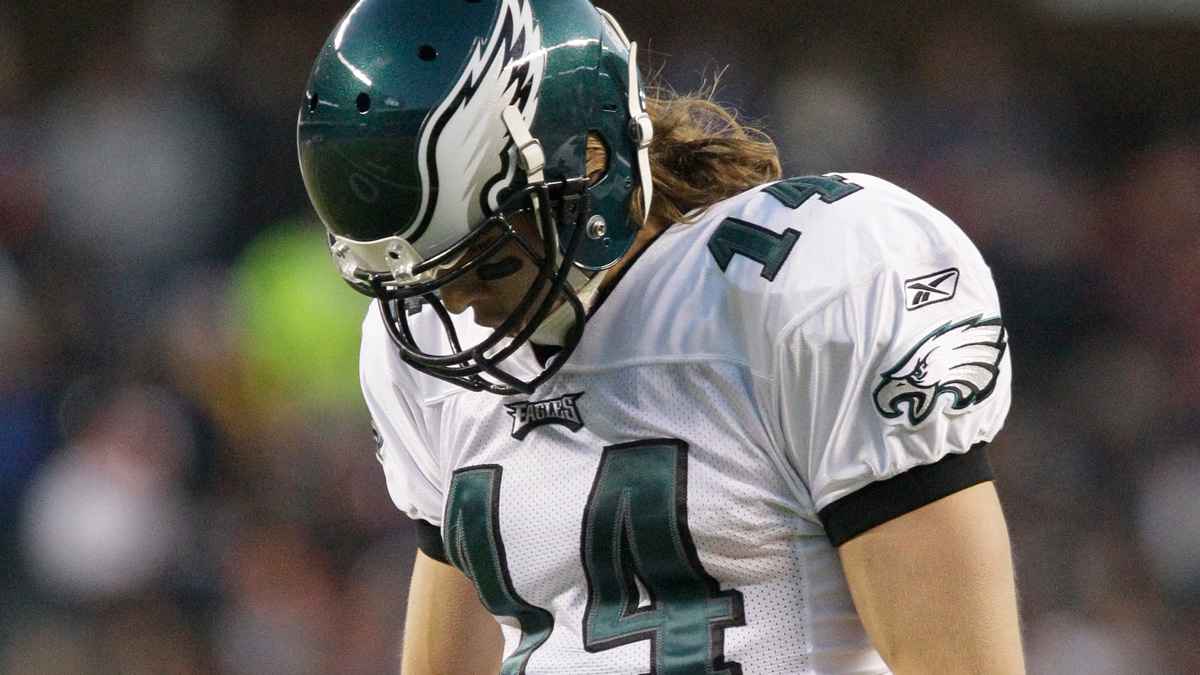What the Riley Cooper flap taught my son

Philadelphia Eagles wide receiver Riley Cooper. (AP Photo/Nam Y. Huh)
I often think of my son when I hear about incidents such as the racist rant by Philadelphia Eagle Riley Cooper, who said of a black security guard at a Kenny Chesney concert that he would, “Fight every n—– in here!”
In my view, those types of interactions are about power and control. They are about belittling people when you feel you have the advantage.
At a country music concert, “every n—– in here,” to use Cooper’s ugly phrase, might have been a few dozen people, and many of them would be workers, much like that security guard.
In an environment like that one, people who harbor racist sentiments tend to be more aggressive. Just ask any black man who’s ever been in such a situation.
But racism isn’t always so vitriolic.
Hatred in disguise
After watching the video of the incident, and seeing the hatred in Cooper’s eyes as he spat the n-word like so much venom, I realized that hate can be concealed by a handshake. It can call itself your companion. It can sit on the bench next to you and never say a word.
Cooper has spent years in locker rooms with black teammates. He has sweat with them at the same practices, played with them on the same fields and eaten with them at the same tables. Many of those black teammates called him a friend. It remains to be seen what they will call him now.
But this is about so much more than Cooper. It’s about all of us, because as I watched Cooper’s comments, a single thought came to me again and again: If Cooper, a man who has spent his career working closely with black people, could express such hatred toward us, what is in the minds of the people who don’t interact with African Americans on a regular basis?
Troubling as a parent
That is the most unsettling thing about this for me, not only as a black man, but also as a father.
I could know a Riley Cooper—someone who purports to be a friend but is a second away from expressing race-based rage. I don’t want to be bothered with people like that. I don’t want my children subjected to that, either.
I don’t want my children to have to deal with people who will smile in their faces while secretly hating them because of their skin color.
I don’t want my children to have to interact with people who will call them friends to their faces and call them the n-word behind their backs.
I don’t want my children to go through life wondering if they were denied opportunities because of what they looked like rather than their qualifications.
I want my children to know that they are unique, that they are talented, that they are beautiful and that they are too complex to be defined by any one word. But I also want my children to be wise.
I told my children as soon as they were old enough to understand that there were people who would not like them because they are black. But I also told my children that not everyone is a racist, and that they must judge every person as an individual, even when others do not afford them that same courtesy.
That is a hard lesson for a father to have to teach.
It is especially difficult as a black father with a son. It’s hard because I know there will be times when he will be treated unfairly because society has deemed black boys as problem children. I know that there will be times when he will have to work harder to overcome stereotypes because people would rather believe their prejudices. I know there will be times when the bigotry of others will weigh on him.
But I also know that my son is a loving boy who is optimistic about the world around him.
He loves science more than sports.
He loves knowledge more than pop culture.
He loves to laugh more than anything.
If I could teach my son anything from this mess with Riley Cooper, I would hope to impart three lessons: Don’t let people’s prejudices define who you are, never judge others by the color of their skin, and no matter what you do, and no matter where you go, never let this world steal your laughter.
WHYY is your source for fact-based, in-depth journalism and information. As a nonprofit organization, we rely on financial support from readers like you. Please give today.

